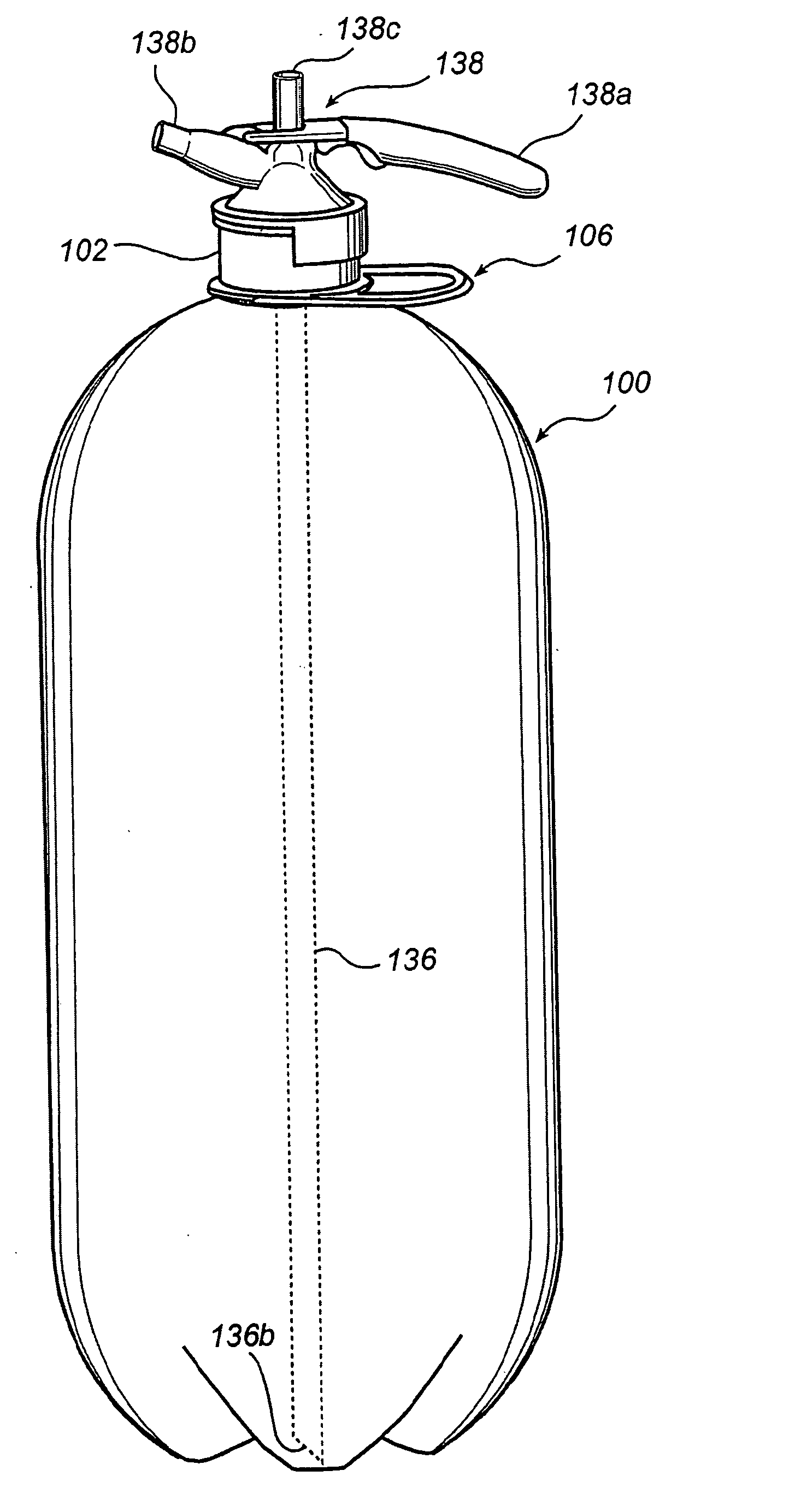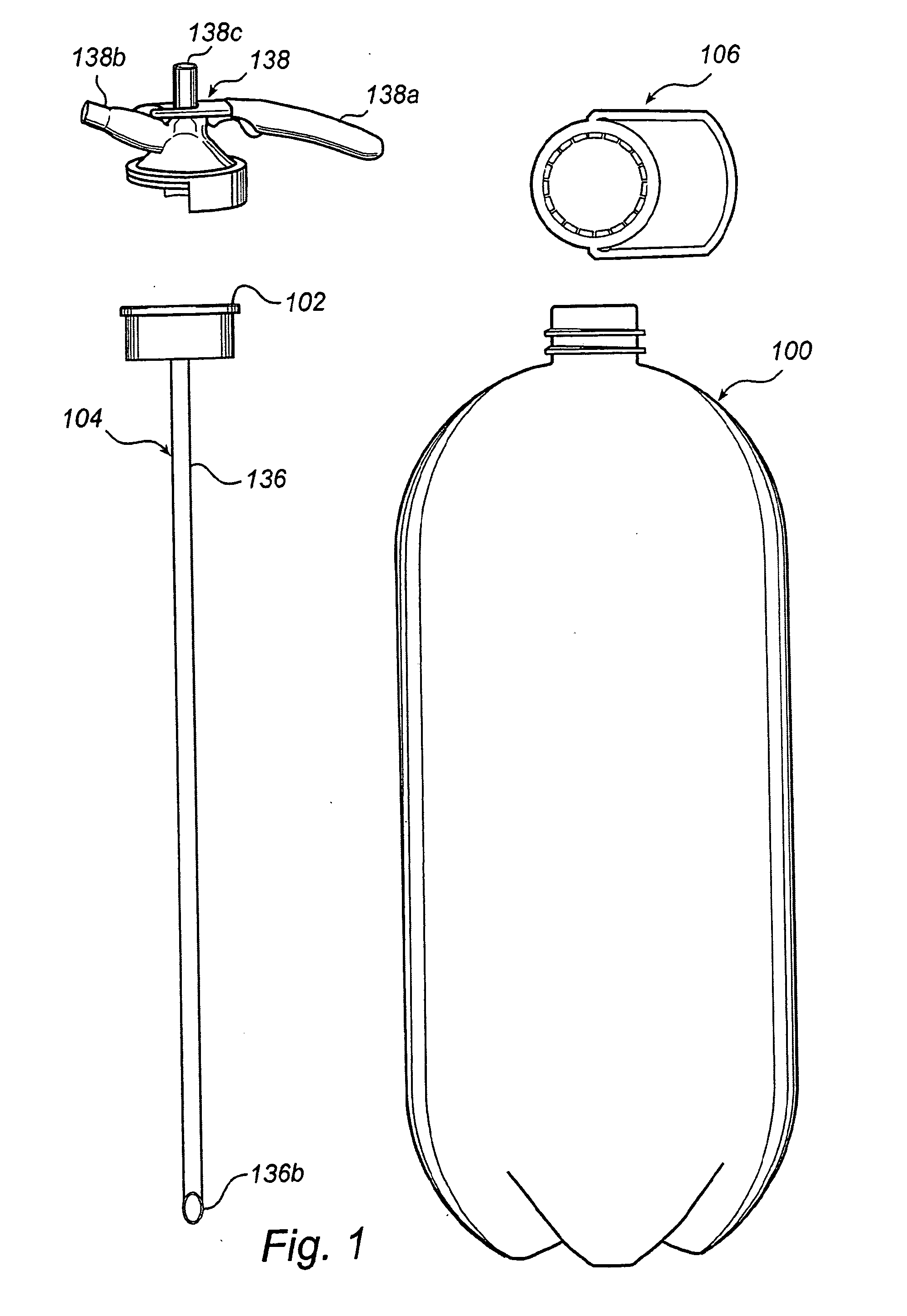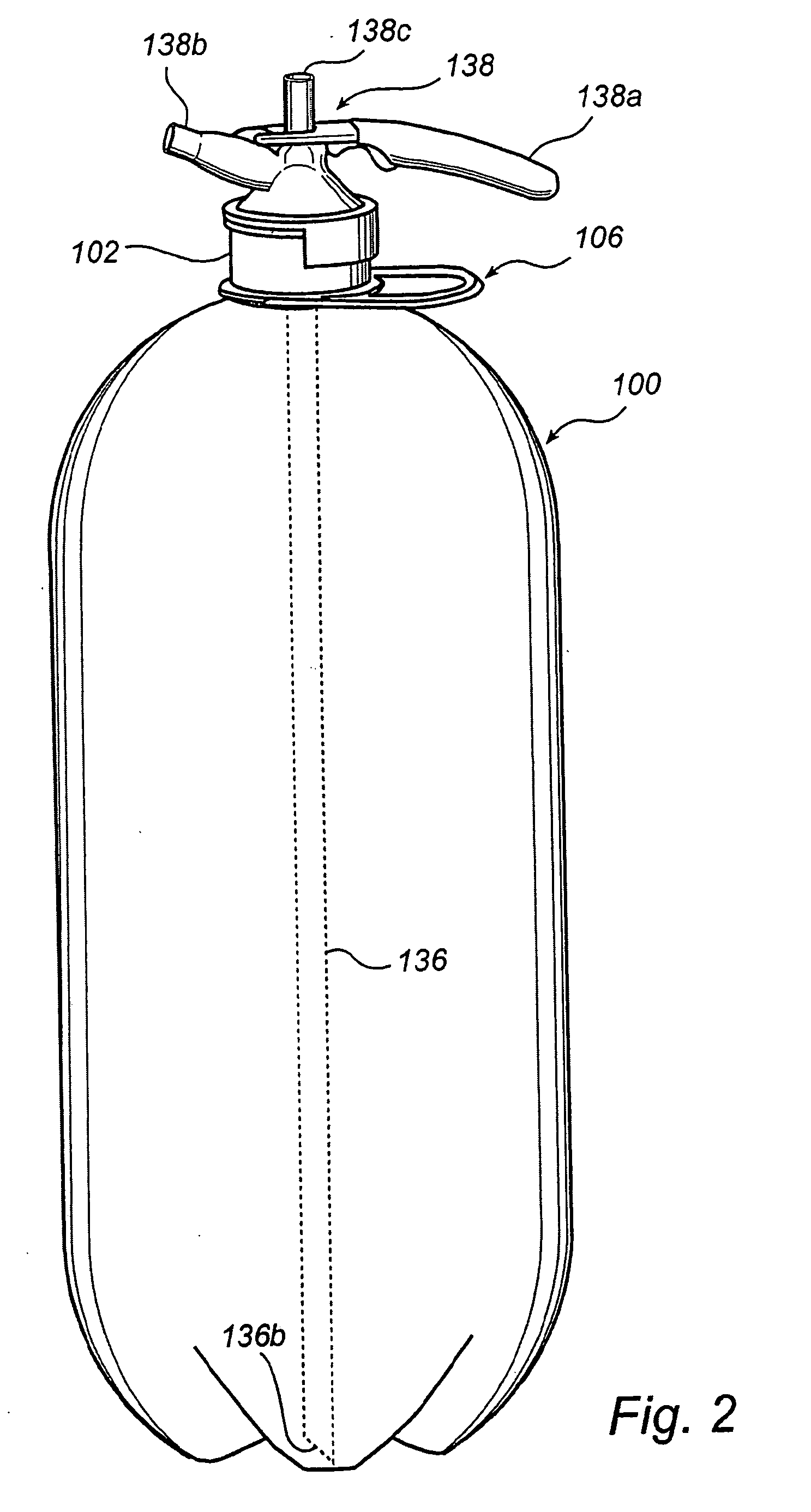System and Method for Distribution and Dispensing of Beverages
a technology for distribution and dispensing systems, applied in the direction of liquid/fluent solid measurement, liquid transferring devices, containers preventing decay, etc., can solve the problems of high cost of steel containers or kegs, relatively expensive and elaborate construction, expensive and complicated, etc., to achieve cost-efficient and secure seal, simple production
- Summary
- Abstract
- Description
- Claims
- Application Information
AI Technical Summary
Benefits of technology
Problems solved by technology
Method used
Image
Examples
second embodiment
[0052]Filling of the disposable container 100 with a carbonated beverage (such as beer) is generally conducted in the following manner. Once the spear structure 104 is assembled as a unit 102, 136 it is attached to the container 100 with the tube 136 inserted into the container 100. Then the container 100 is placed upside down in a filling station (not shown). Air inside the container 100 is flushed out by carbon dioxide, and an overpressure (a filling pressure) is established. These measures are taken in order to minimise the risk of foam being produced during filling, which would slow down the filling procedure. If the risk of foam production is low, said measures can obviously be cancelled. During filling the annular valve member 128 is depressed so that beverage can be injected into the container 100. Gas contained in the container 100 is forced out upwards. through the elongate tube 136. The container 100 could also be filled prior to the arrangement of the spear structure 104,...
first embodiment
[0057]FIG. 7 shows an alternative and less complex closure element in the form of a pierceable plastic cap 140. Before being attached to the mouth portion 108 of the container 100 the cap 140 is provided with an elongate tube 136′ similar to the elongate tube 136 of the The tube is indicated by phantom lines extending from the cap 140. Prior to being provided with the pierceable cap 140 and the tube 136′, the container 100 is filled in the following manner: Air is first flushed from the container 100 which stands upright, by use of carbon dioxide or nitrogen in order to make the filling procedure more efficient. A filling pressure is optionally provided. An elongate filling nozzle (not shown) is inserted into the container 100 which is kept upright, and the beverage is filled into the container 100. The filling rate is slower at the beginning until approximately a decimetre of beverage is filled into the container 100, and the nozzle orifice is submerged. Then, the filling rate inc...
PUM
| Property | Measurement | Unit |
|---|---|---|
| Thickness | aaaaa | aaaaa |
| Thickness | aaaaa | aaaaa |
| Volume | aaaaa | aaaaa |
Abstract
Description
Claims
Application Information
 Login to View More
Login to View More - R&D
- Intellectual Property
- Life Sciences
- Materials
- Tech Scout
- Unparalleled Data Quality
- Higher Quality Content
- 60% Fewer Hallucinations
Browse by: Latest US Patents, China's latest patents, Technical Efficacy Thesaurus, Application Domain, Technology Topic, Popular Technical Reports.
© 2025 PatSnap. All rights reserved.Legal|Privacy policy|Modern Slavery Act Transparency Statement|Sitemap|About US| Contact US: help@patsnap.com



